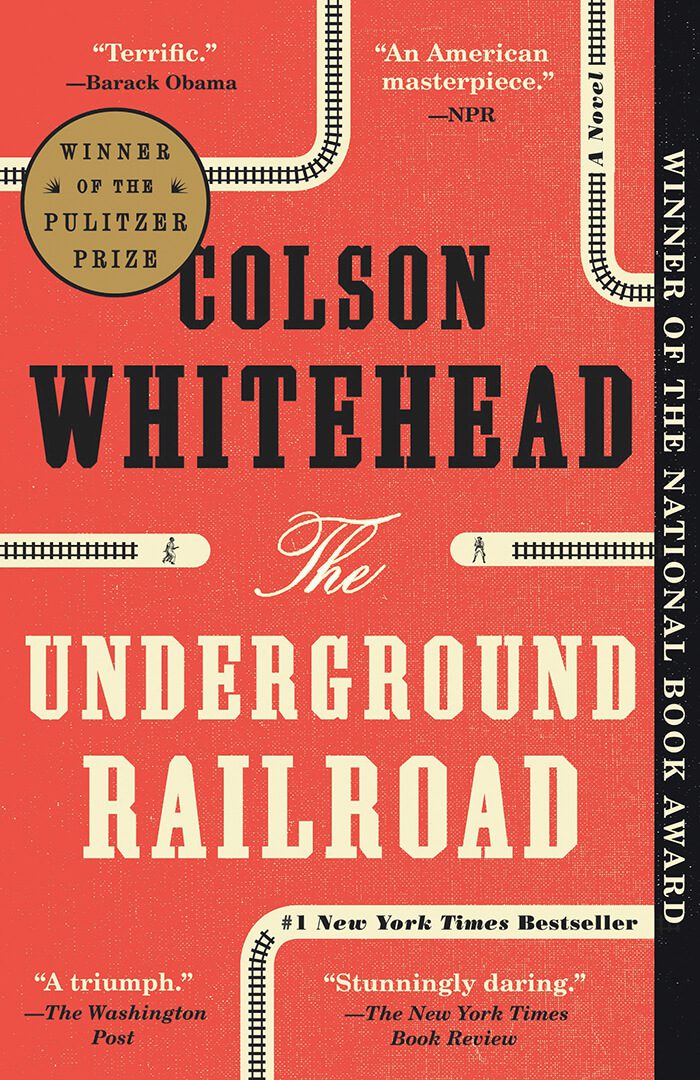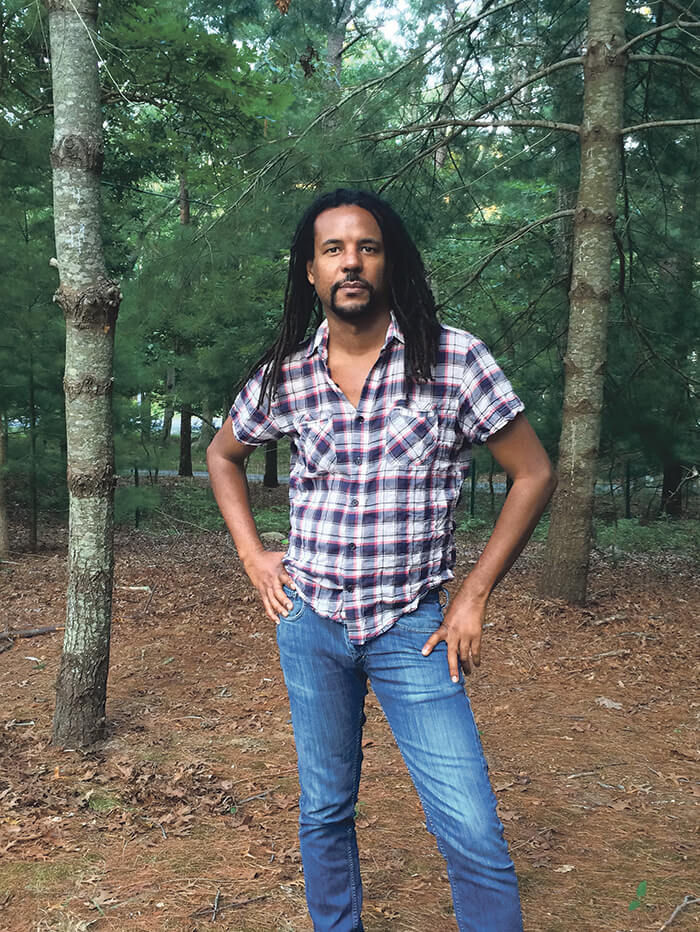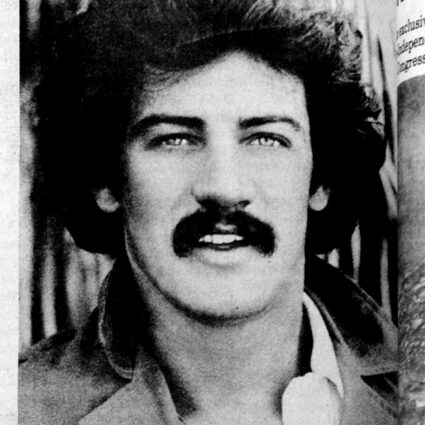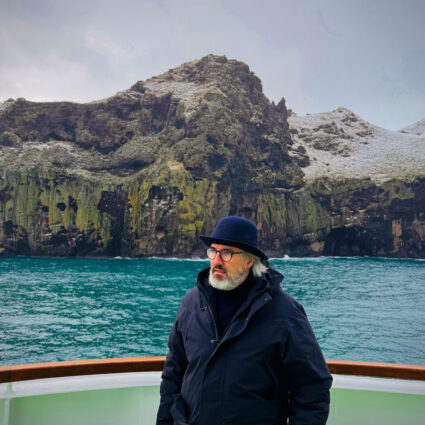
In the late ’80s and early ’90s, Pulitzer Prize– and National Book Award–winning novelist Colson Whitehead and New Yorker poetry editor Kevin Young were a couple of kids at Harvard. They became friends long before either had a writing career to speak of, but in Whitehead’s words, “We had this little literary magazine and we kept at it.” Young had revived and was co-editing Diaspora: the journal of black thought and culture in 1989, which had been around in the sixties. In the journal, the story “Sylvia’s Crime” (which Whitehead recalled in conversation as “a five-page story about being depressed or something”) and a comparative film review titled “Shaft vs. Action Jackson” appear under the pseudonym Chipp Whitehead.
Both writers participated in the Dark Room Collective, which had formed two years earlier at James Baldwin’s funeral, when poets Thomas Sayers Ellis and Sharan Strange began informally hosting readings and a writing workshop. They took their name from the room on the third floor of their shared house on Inman Street, where Strange, Ellis, and their housemates had been assembling a library of black authors in a room that had housed photographic equipment. Writers who participated remember the readings like a kind of church. Visiting authors included two-time poet laureate Tracy K. Smith, Natasha Tretheway, Alice Walker, bell hooks, Randall Kenan, Toni Cade Bambara, and Derek Walcott, among others. Young and Whitehead were in conversation at the Lensic back in 2012 to celebrate the publication of Young’s nonfiction book, The Grey Album: On the Blackness of Blackness, which he dedicated to Whitehead, and his poetry collection, Ardency. This month, they will switch roles to talk about Whitehead’s novel, The Underground Railroad, and their wildly successful careers. I spoke with Whitehead in April about the sci-fi and horror novels he read as a kid, writing in the age of Trump and Twitter, and coming into consciousness via the Twilight Zone.
Jenn Shapland: The use of portals between worlds or places has shown up in a number of books and films lately, including in The Underground Railroad, in which a literal railroad acts as a fantastical element that also serves the purpose of transporting Cora between locations and political realms. It also shows up in Moshin Hamid’s Exit West, as doors between countries that allow for swift but one-way immigration, and in the movie Get Out as hypnosis, the sunken place. How are the portals in Underground Railroad necessary? What do they help you say?
Colson Whitehead: I think you can have a straightforward, realistic depiction of being a refugee or being a slave without having a fantastic element; you pick the right tool for that. In my case, the origin story eighteen years ago was just, “what if I made this metaphor into a literal train?” So from its very conception, it has this fantastic structure. For Cora, I think if I’d written this years ago, I would have spent more time on the railroad, who built it, how’d it work, which is actually the least important part to me; the important part is getting Cora from this world to the next world to the next alternative America. And so the portal is a function of the railroad, and it’s not explicated in this overly explicit way.
I grew up reading fantasy as a kid. You step into the wardrobe, the door in Narnia, you step through a magic door in a lot of fantasy books, and you’re in an alternative space. The structure goes back a long way, I don’t think it’s more or less appropriate to deal with real-life events or issues. It’s just a tool that can be useful.
We go to fiction to be delighted, to be educated, to provide a couple hours of escape, and whether things are going great or terribly in our lives, art is always there to serve a function.
What sci-fi/fantasy were you reading as a kid?
Incorporating horror: I read Stephen King; in junior high I read a lot of HP Lovecraft, Peter Straub—a lot of folks who were writing horror around then. Science fiction: the carryover of the big ’50s and ’60s heavyweights, like Isaac Asimov and Ray Bradbury, and, of course, The Twilight Zone. I was a shut-in. I liked to watch a lot of TV, so a lot of Twilight Zone. Someone steps onto a train or opens a door, and they’re in the Twilight Zone. It was reading fantasy that made me want to be a writer, and now across my books I use the tools of fantasy and science fiction when it’s appropriate.
Rereading your novels, I see a trend of coming into consciousness, wherein youngish characters begin to see themselves in a larger context after having existed in a kind of bubble. What was your coming into consciousness like? What writers, voices, and cultural icons/moments shaped you?
That transition is a plot point, it starts the part two of a book. Someone starts off in a normal space and something happens to set the plot in motion, whether it’s an elevator accident, or a trip on the railroad, or coming into your adolescence. So that starts the story. I don’t have a big theory on why it’s different from other people’s books. In terms of me, my awakening, I didn’t have like a moment of clarity, but to bring up Twilight Zone again, obviously Rod Serling’s Elegant Humanism, that kind of science fiction utopian view of human nature is a good way to start out in terms of encountering the world. I would take dystopian science fiction, I would take comedians, Richard Pryor and George Carlin, who I saw in their concert films when I was very young. It’s everything. It’s not just one thing.

Underground Railroad feels like your most explicit book, to me. It’s also, to my knowledge, your most recognized work: it won the National Book Award, the Pulitzer, and it was picked for Oprah’s book club. Did you think about the style and the narrative as accessible as you were writing it? Do you feel like the subject, or the time in which you wrote it, calls out for accessible
stories and characters?
I don’t know why people like it, frankly. I like it ’cause I wrote it, and I tried to do a good job. But I can’t think of why it’s more successful or less successful than some of my other books. Apex Hides the Hurt makes perfect sense and seems perfectly likable, and Zone One seems perfectly likable. In terms of its linearity, its structure, it’s plot-oriented, as opposed to, say, Sag Harbor. People like plot-oriented. In Underground Railroad there’s a straightforward destination, the North. The stakes are high: it’s life or death. It’s inaccessible in terms of its brutality; there are definitely things I could see turning people off in the book. But I don’t have a grand theory of why people like it. It certainly wasn’t conscious. Plotlessness is a tool, and so is a plot-driven story. An unlikeable protagonist is a choice you make; a protagonist who is a little less cold is a choice. So, depending on what I’m doing, I hopefully make the right choices. And then sometimes people come along and sometimes they don’t. Not to be super Zen about it.
How do you feel about Barry Jenkins writing and directing a TV series of Underground Railroad? What are your hopes and dreams for the show?
Well, he’s smart. I’m sure he’s going to do a great job. When he approached us, it was before Moonlight came out. I’d seen it, and it was great, but he hadn’t been appreciated by the outside world yet, so we were taking a risk. But all of his ideas were great and inspiring. It’s one thing to write a chapter where Cora spends sixty pages in an attic, and it’s very static, another thing to get that on screen and make it dynamic for TV. Adapting has different problems than I’ve faced, and he had a lot of smart solutions. He’s written the first episode, and I guess they’re waiting for approval for it to go to series, but I’m keeping my fingers crossed. It’d be nice to see Cora. I don’t really have a picture of her in my mind. It’d be weird to see all these different people who exist in a shadowy way in my consciousness, and then to see them on screen.
What are you working on right now?
A short novel, trying to finish it up this summer. It’s been all about the book, which has been great, but it cuts my work time. After a year and a half, I was like, “What am I doing if I’m not working?” Also I’m a news junkie, so just to keep my mind off of Trump seemed wise, get back to work.
Do you find it difficult to transition between the kind of attention that you pay to what’s happening in the headlines and on Twitter vs. the kind of sustained attention you need to work on fiction?
I grew up as a TV junkie. I grew up in the age of the internet. I started writing twenty-five years ago, so if I’m stuck on something, I go to Google and look it up—for example, when was the typewriter invented? I can just go to Google and look it up and then fix it in my manuscript. I check my email, I’m on Twitter, I take a break, I’m back at work: that’s how I’ve always gotten things done. I’m not any more distracted. I’m more depressed—about the news. But there’s always something to be depressed about, whether you’re broke, or someone in your family is sick, or whatever. There’s always something.
What do you feel the role of fiction is in the age of Trump?
I have no idea. I think there’s fiction that’s escapist. There’s fiction that incites. And I think at different moments in our lives, when things are tough, we go to fiction because we recognize a writer wrestling with darkness. We pick a book because it’s totally escapist, and it’s a totally different mood from what’s going on in our lives. The same function as ever. We go to fiction to be delighted, to be educated, to provide a couple hours of escape, and whether things are going great or terribly in our lives, art is always there to serve a function.
The Underground Railroad is now out in trade paperback from Anchor Books. Colson Whitehead will read and be in conversation with Kevin Young at the Lensic Performing Arts Center on Wednesday, May 9, 7 pm, sponsored by the Lannan Foundation.



